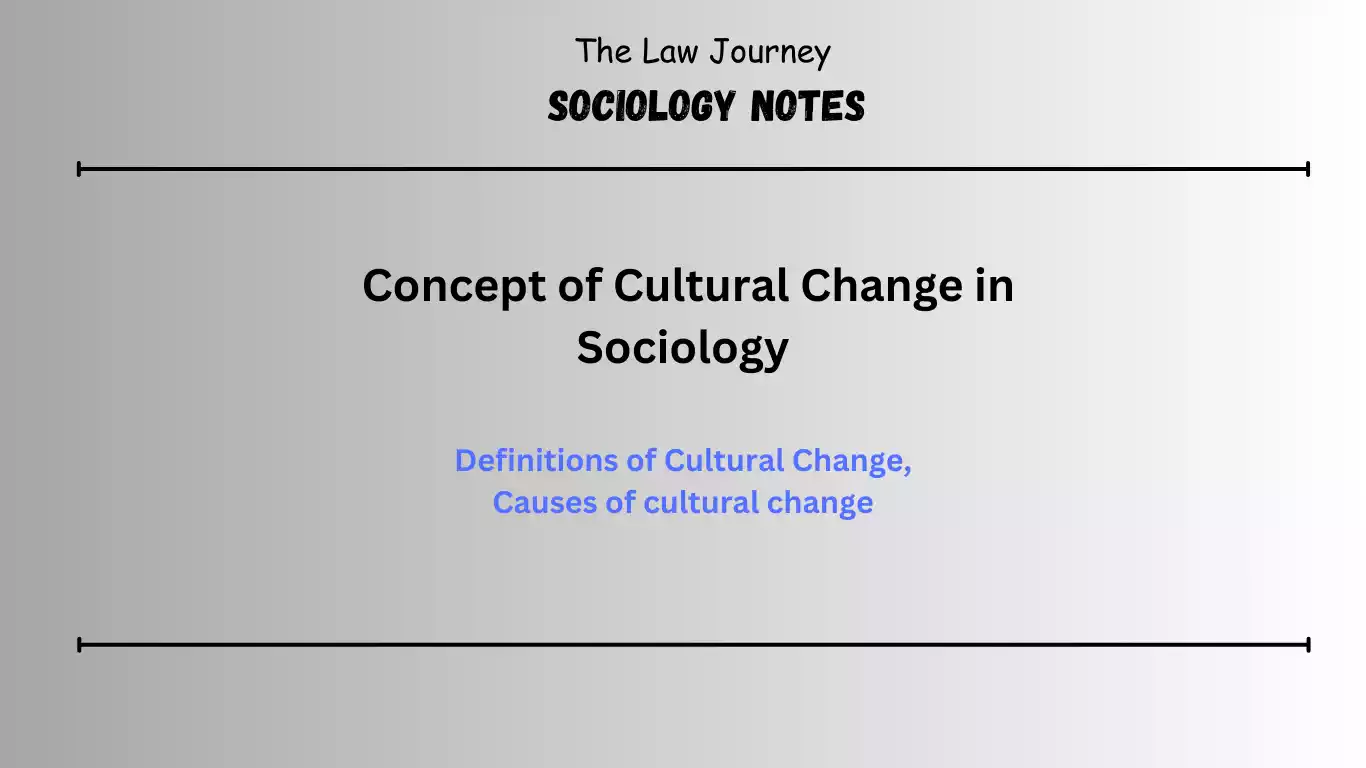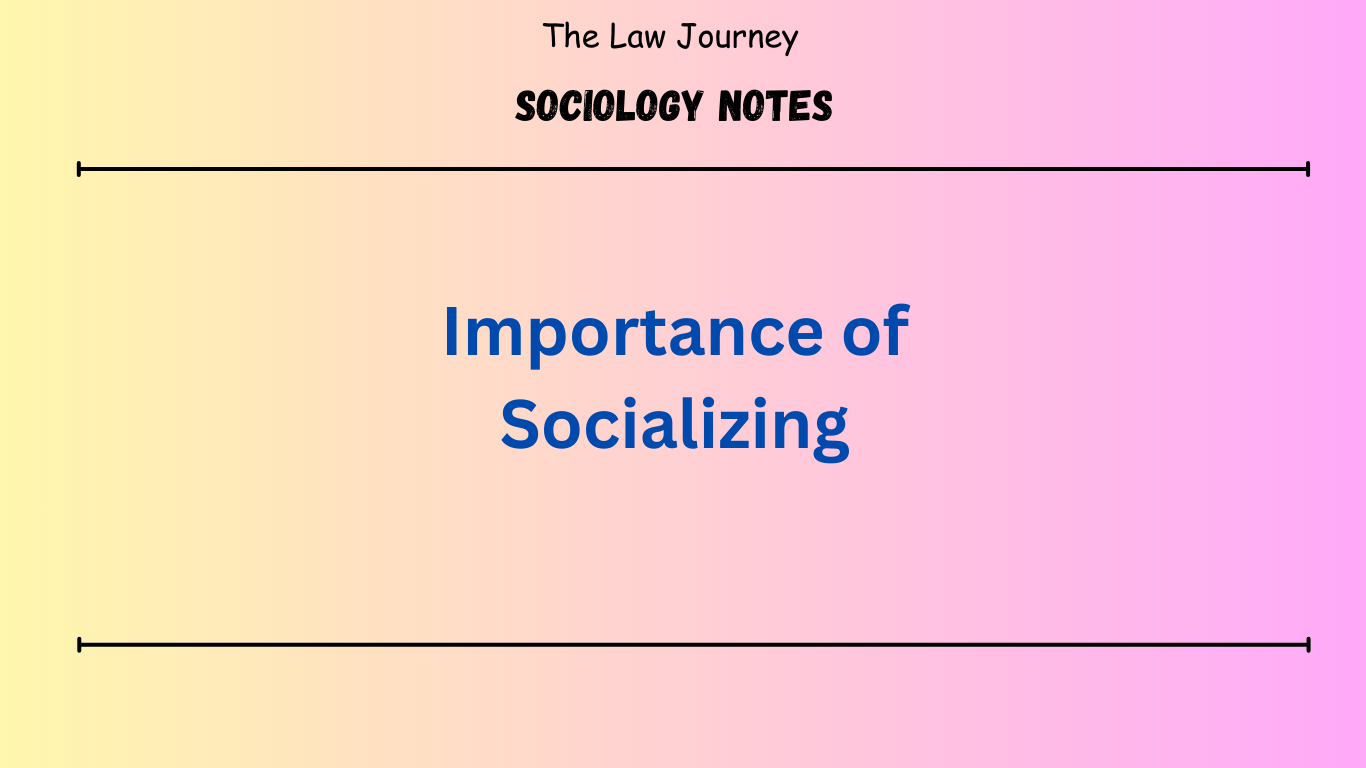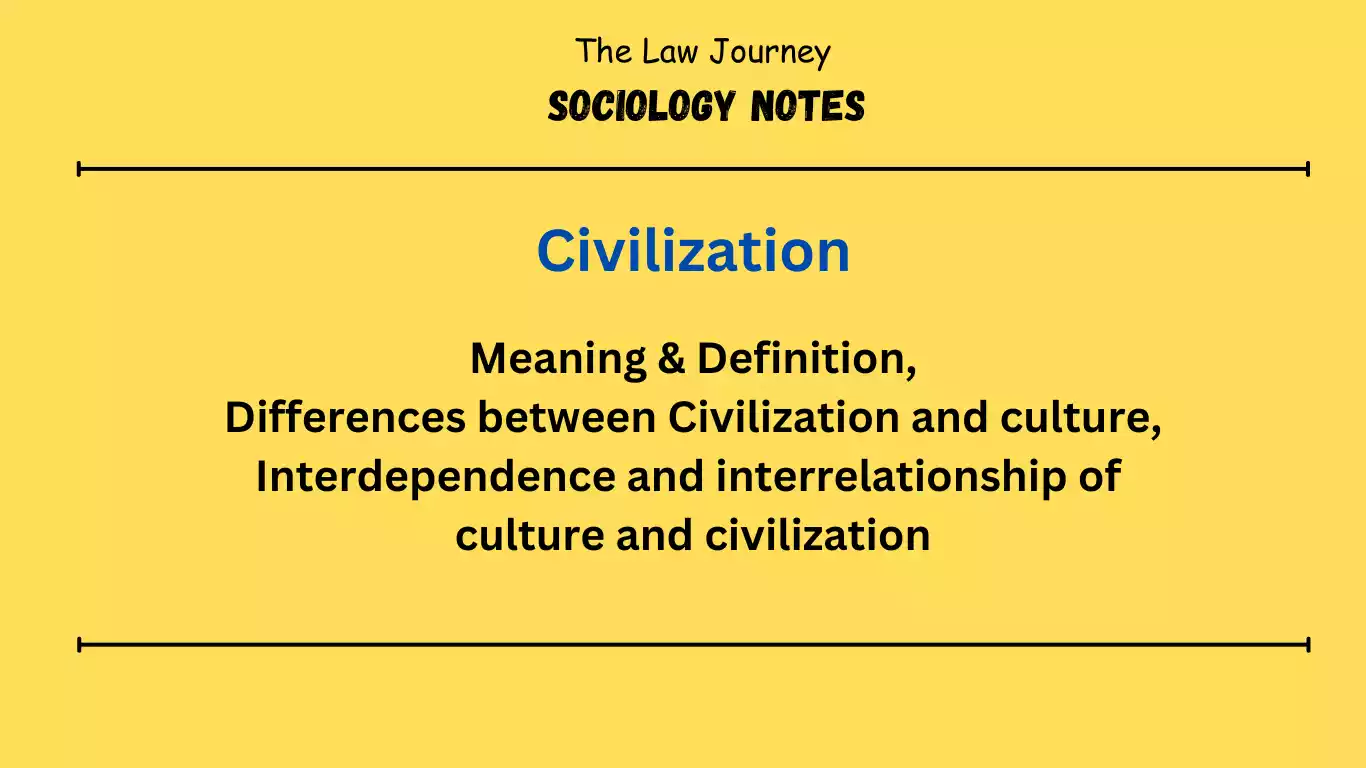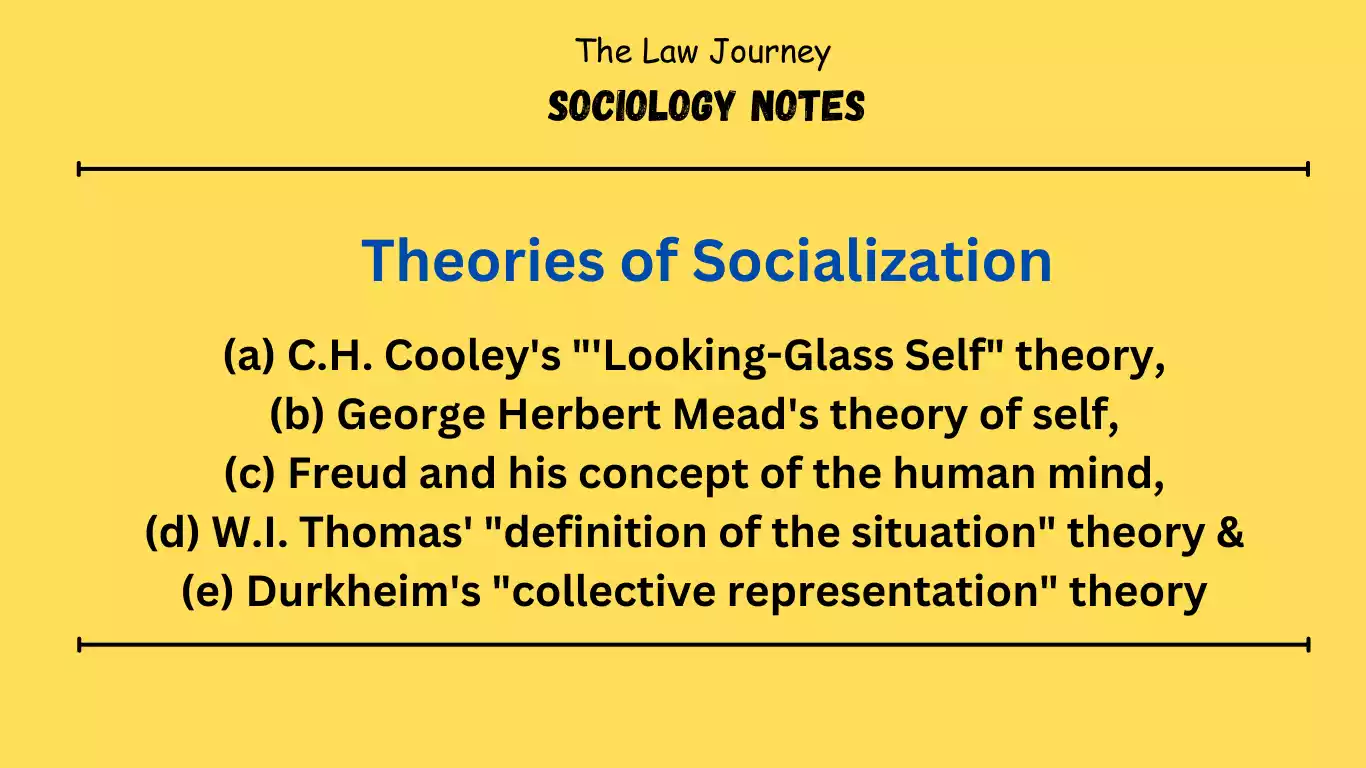Cultural change in sociology refers to the evolution of beliefs, customs, norms, and values within a society over time. This includes changes in art, technology, language, and social mores, and reflects changes in broader society. Cultural change can result from external influences, such as globalization, or internal movements, such as generational change, and can affect social cohesion and identity.
Definitions of Cultural Change
According to Kingsley Davis, cultural change includes not only changes in the forms and rules of social organization, but also all changes that occur in all sectors of culture, including the arts, science, technology, philosophy, etc. ”
According to David Dressler and Donald Carns, “Cultural change is the modification or discontinuance of existing ‘tried’ and ‘tested’ procedures transmitted to us from the culture of the past, as well as the introduction of new procedures”.
In other words, any change that occurs in the field of culture can be called cultural change. Culture is not static, it is dynamic. It is also subject to change. For example, the invention and popularization of the automobile, the addition of new words to our language, changing concepts of property and morality, new forms of music, art, and dance, new styles of architecture and sculpture, new rules of grammar and meter, General trends in gender equality, etc. all represent cultural changes, and almost all important changes involve both social and cultural, material and intangible aspects.
All cultures change, albeit in different ways and at different paces. Culture is usually seen as conservative, especially in its intangible aspects. For example, people are reluctant to abandon old values, habits, and beliefs in favor of new ones.
Changes in one area of a culture affect other parts of the culture in some way. This is because the culture is highly integrated. Moreover, one change can lead to another. Some fundamental changes can affect almost every other cultural element, for example, the way a society makes a living, conducts economic activities, and uses the environment.
Causes of cultural change
David Dressler and Donald Kearns have made the following observations regarding the causes of cultural change:
- Members of a society may be faced with customs that differ from those they have previously accepted. In such situations they accept some new habits and reject them to Follow modified versions of others and even others. This can be called cultural eclecticism.
- New customs and practices may be more easily adopted under two conditions: (i)It represents what is considered socially desirable and useful, and (ii) it is consistent with what is needed. Customs and customs still existed and were cherished.
- Cultural change always overwrites existing culture, especially when it comes to cultural contact.
- It is generally observed that even if people accept new customs and customs, they do not completely abandon their traditional culture.
- Cultural change is always relative. We don’t have a “changed” culture, but strictly speaking we are just a “change in culture.” Cultural change usually occurs gradually but continuously. Therefore, we can see that old customs and new customs coexist within the same society.
- Nevertheless, it can also be observed that some cultural changes did not originally respond to either the “survival needs” or the “acquired needs” of the people. For example: new ways of disposing of the dead. It is well known that crises tend to trigger or accelerate cultural change.
- All cultural changes are equally important. Some changes are introduced into a culture because they are considered necessary for the survival of humanity. Several other changes are accepted to meet socially acquired needs that are not essential for survival.
- Cultural change is cumulative in its overall impact. Much has been added and little has been lost. Its growth is similar to that of a tree that continues to grow, only occasionally losing leaves and sometimes branches as long as it lives.
- Once accepted, crisis-induced changes tend to stick. Example: During World War II, women were accepted into the defense industry and continue to work there today.
- Cultural change causes a chain reaction. “Each time a change is integrated into a culture and defined as a “social necessity,” a new need is created that creates a desire for further change that complements or complements the original change.
Related Post | Cultural Change
- Concept of Social Groups in Sociology
- RTI notes
- Political Notes
- Legal History Notes
- Law of Torts notes
- law project maker
- moot court memorial maker
Definitions of Cultural Change ?
According to Kingsley Davis, cultural change includes not only changes in the forms and rules of social organization, but also all changes that occur in all sectors of culture, including the arts, science, technology, philosophy, etc. ”
Causes of cultural change ?
1. Members of a society may be faced with customs that differ from those they have previously accepted. In such situations they accept some new habits and reject them to Follow modified versions of others and even others. This can be called cultural eclecticism.
2. New customs and practices may be more easily adopted under two conditions: (i)It represents what is considered socially desirable and useful, and (ii) it is consistent with what is needed. Customs and customs still existed and were cherished.
Reference Books | Cultural Change
- C.N. Shankar Rao – Principle of sociology with an introduction to social thoughts
- Introduction to Sociology by Anthony Giddens
- A Dictionary of Sociology by John Scott
- Sociological Theory by George Ritzer
- Handbook of Indian Sociology by Veena Das
- Social Change in Modern India by M N Srinivas

















